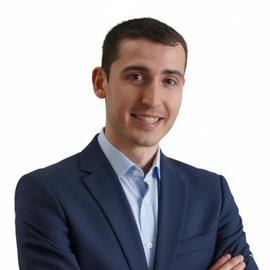Resumen
Graphs are commonly used to represent related elements and relationships among them. Signed graphs are a special type of graphs that can represent more complex structures, such as positive or negative connections in a social network. In this work, we address a combinatorial optimization problem, known as the Cyclic Minimum Sitting Arrangement, that consists of embedding a signed input graph into a cycle host graph, trying to locate in the embedding positive connected vertices closer than negative ones. This problem is a variant of the well-known Minimum Sitting Arrangement where the host graph has the structure of a path graph. To tackle the problem, we propose an algorithm based on the Multi-Armed Bandit method that combines three greedy-randomized constructive procedures with a Variable Neighborhood Descent local search algorithm. To assess the merit of our proposal, we compare it with the state-of-the-art method. Our experiments show that our algorithm outperforms the best-known method in the literature to date, and the results are statistically significant, establishing itself as the new state of the art for the problem.
Publicación
Computers and Operations Research

Estudiante de Doctorado en Inteligencia Artificial
Marcos Robles se graduó en Ingeniería del Software por la Universidad Rey Juan Carlos en 2022. Trabaja aquí como investigador predoctoral centrado en problemas de embebido de grafos.

Doctor en Inteligencia Artificial
Sergio Cavero nació en Madrid (España) el 24 de septiembre de 1997. Se graduó en Ingeniería del Software por la Universidad Politécnica de Madrid en 2019. Durante sus estudios de grado realizó una estancia en la Universidad de Bradford (Reino Unido). Además, fue galardonado en dos ocasiones con la Beca de Excelencia de la Comunidad de Madrid, así como con el premio al Mejor Proyecto Fin de Carrera. Posteriormente, realizó un Máster en Inteligencia Artificial en la misma universidad (UPM) obteniendo los premios al Mejor Expediente Académico (‘Premio José Cuena’) y al Mejor Trabajo Fin de Máster. Sus resultados académicos le permitieron ser beneficiario de una de las ‘Ayudas para la Formación de Profesorado Universitario (FPU)’, financiadas por el Gobierno español. Actualmente realiza su tesis doctoral en la Universidad Rey Juan Carlos, dirigida por los profesores Abraham Duarte y Eduardo G. Pardo. Sus principales intereses de investigación se centran en la interfaz entre las Ciencias de la Computación, la Inteligencia Artificial y la Investigación Operativa. La mayoría de sus publicaciones tratan sobre el desarrollo de procedimientos metaheurísticos para problemas de optimización modelados por grafos.